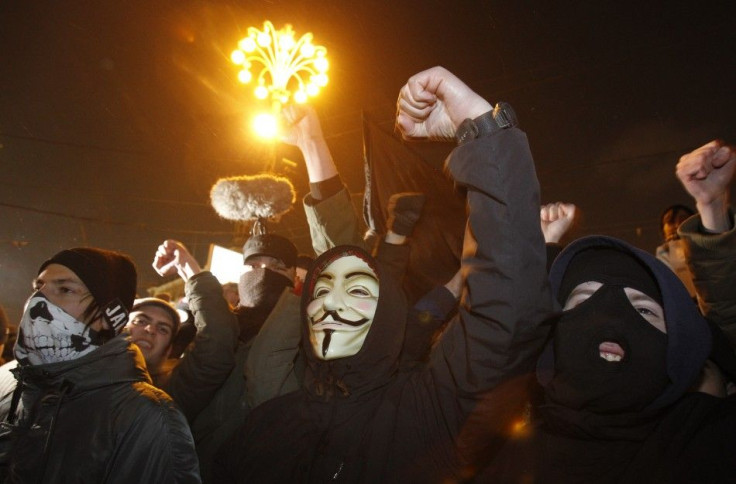Russian Markets Fall on Post-Election Fears

Russian markets reacted negatively Tuesday, a day after street protests, media reports and international observers questioned the legitimacy of the landslide victory by President-elect Vladimir Putin.
The ruble-denominated Micex index dropped 3.9 percent, while the dollar-denominated RTS index fell more than 4.3 percent just 24 hours after Monday's Putin bounce lifted both indexes to record highs.
The losses come on the back of a downgrade warning by ratings firm Fitch, which said it was watching closely how quickly Putin -- with a new, six-year term in hand from Sunday's vote -- would act to reform Russia's economy, adding that the country's dependence on oil and gas makes it acutely vulnerable to falling commodity prices. Fitch warned that a downgrade of its stable long-term outlook on Russia is possible, if there isn't follow-through on promised reforms in public-sector wages, pensions and subsidies.
Putin has pledged to increase spending on the military, health provision and [to] hike wages further, Fitch noted, adding that the initiatives could cost $160 billion, or 8 percent of projected gross domestic product over Putin's forthcoming six-year term. He officially takes office in May.
Analysts added that Russia's spending spree had already widened its non-oil and gas deficit to 10 percent of GDP, leaving it especially vulnerable to price fluctuations.
Economists from Wells Fargo said that despite Putin's victory Sunday, there were still doubts among investors about the long-term stability of his administration.
Putin's heavy-handedness in the political sphere, an unfriendly business environment and rampant corruption have many clamoring for change, they wrote. In the end, a greater fear of the unknown than of the known may have carried Putin to victory.
Analysts are concerned about how long anti-election protests will last, after observers from the Organization for Security and Cooperation in Europe alleged widespread voting fraud and an unfair playing field for other candidates.
On Monday, over 15,000 protesters gathered in Moscow's Pushkin Square chanting, Russia Yes! Putin No! as hundreds of riot-control officers blocked more people from joining the crowd, the Moscow Times reported.
Speaking to the English-language newspaper, Aton brokerage chief equity strategist Peter Westin said protests are an ongoing concern for investors.
We need to see what the opposition is going to do, and we need to see what the leadership's response to the opposition will be, he said. I wouldn't lower [the] political risk yet, that's for sure.
© Copyright IBTimes 2024. All rights reserved.





















